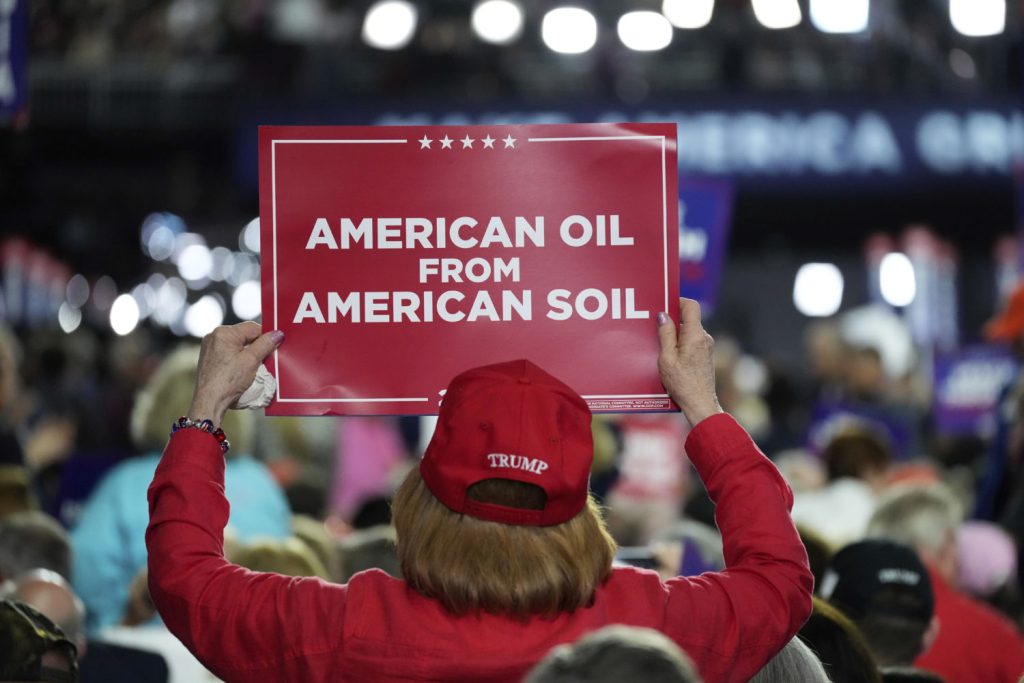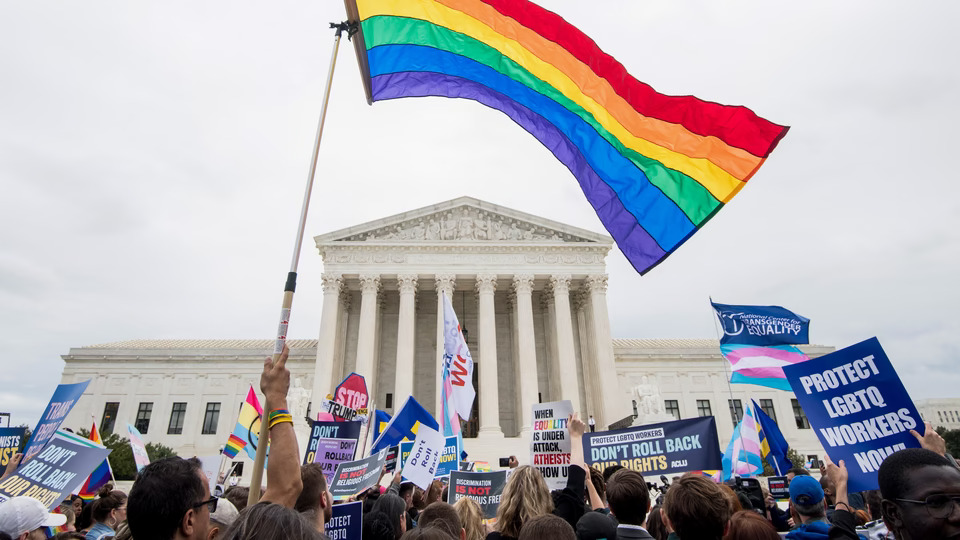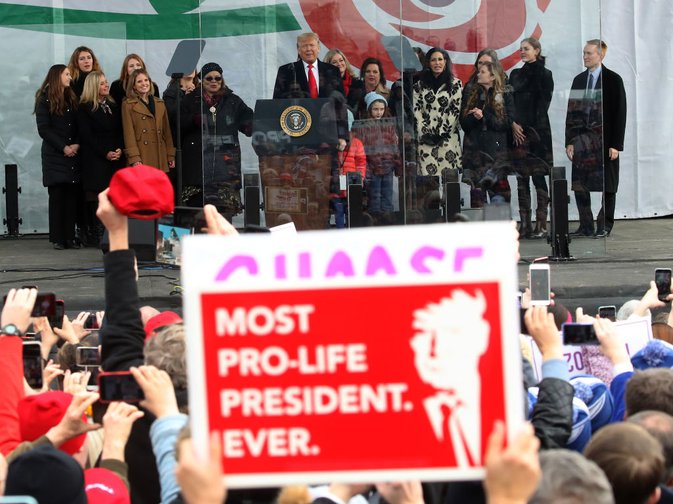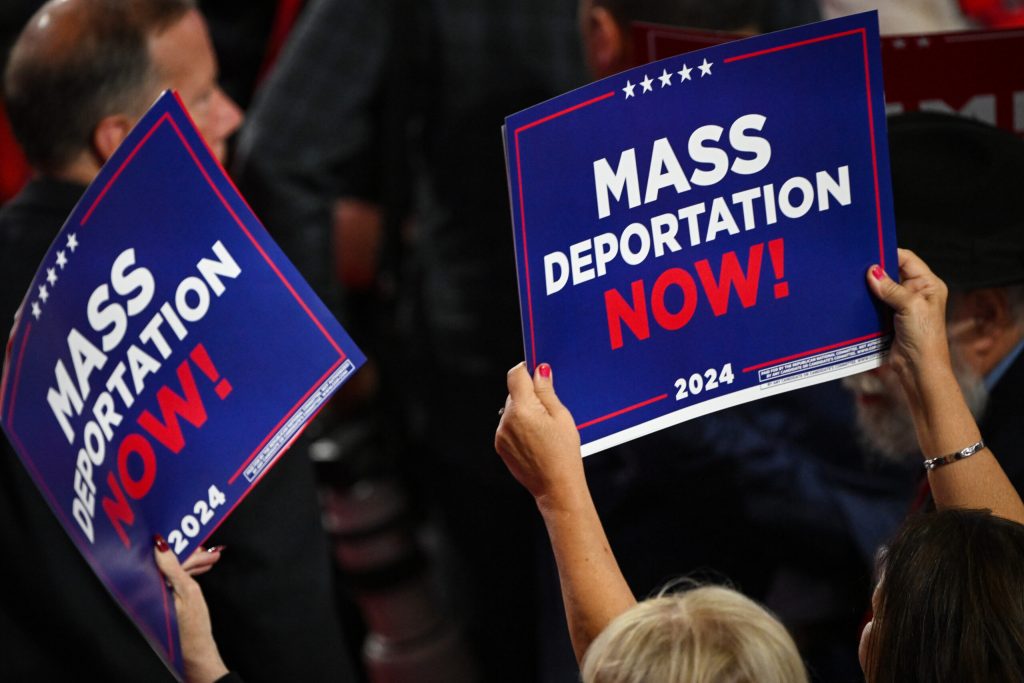The election of Donald Trump to the presidency of the United States will likely have significant impacts across various sectors, including the environment, immigration, and reproductive rights, resulting in a lasting effect on a wide range of issues both domestically and internationally. During his previous presidential term from 2017 to 2021, Trump took actions that radically reshaped the political and social landscape of the country, marking a return to conservative policies often at odds with the progressive agenda of the Biden administration. In particular, sectors such as the environment, immigration, LGBTQ+ community and women’s rights may be redefined by a political vision that prioritizes short-term economic interests and national sovereignty, at the expense of global commitments like those to combat climate change or uphold civil rights.
Changes in Environmental Policy under Trump
Although environmental policy has not been a central theme in his election campaign this year, signals from his past statements and positions suggest a return to climate policies that could have devastating effects not only for the United States but for the entire planet, considering that the U.S. is the second-largest emitter of carbon dioxide in the world. Therefore, Washington’s policy choices have a direct impact on the future of global climate.
One of his first actions, once taking office in January 2025, will likely be to reverse many of the environmental policies introduced by the Biden administration, including those contained in the Inflation Reduction Act, one of the most ambitious laws ever passed by the U.S. in terms of energy transition. This program incentivizes and promotes the shift to greener technologies, such as electric vehicles, and investments in renewable energy, with the goal of reducing greenhouse gas emissions. Trump has already expressed his desire to undo these measures, arguing that environmentally friendly policies harm the economy and lead to job losses.

However, the repeal of renewable energy incentives under the Inflation Reduction Act may not be immediate, as these incentives were particularly aimed at Republican-majority states, which could provoke internal opposition within his own party. This internal division might make it difficult to fully cancel the measures approved under Biden, especially since the U.S. remains a key player in financing the global energy transition through the World Bank.
Another major objective of his administration in this area will likely be to withdraw the U.S. from the Paris Agreement again, a move he already made in 2017, which marked a breaking point in international climate negotiations.
In summary, a return of Trump to the White House will present the risk of a significant slowdown in U.S. environmental policies, not only by undoing domestic initiatives but also through a potential withdrawal from crucial international commitments, such as the Paris Agreement. This would accelerate the reversal of the already fragile global energy transition, as renewable energy has not yet achieved sufficient widespread adoption to ensure full decarbonization, while many major economies continue to delay their sustainability commitments. Trump’s policies, which favor the short-term interests of the fossil fuel industry, stand in stark contrast to the urgent needs of the international community, creating a void that will be difficult to fill.
Impacts on the LGBTQ+ community
The LGBTQ+ community is a group largely targeted by Trump’s discriminatory and hate-inducing politics. Already during its previous presidential term, the Trump administration implemented more anti-LGBTQ+ policies than any previous administration in U.S. history. These policies included banning trans* people from serving in the military, removing programs combating discrimination of the LGBTQ+ community and opposing the protection of LGBTQ+ employees at the workplace.
During his campaign for the 2024 presidential elections, Trump especially targeted trans* people. Similarly to his strategy regarding other marginalized groups, Trump ridiculed and demonized trans* people to create a common enemy for his supporters. According to data published by Ad Impact, he spent nearly $215 million in total on anti-trans* advertisement in this election cycle. A substantial amount of this advertisement revolved around claiming that Kamala Harris’ agenda was too focused on trans* issues. His slogan “Kamala is for they-them; President Trump is for you” is aimed towards cis people (those that identify with the sex they were assigned at birth) that are indifferent to the rights of trans* people. The slogan further encourages the discrimination of trans* and especially nonbinary people and alienates them.
As part of his 2024 election campaign, Donald Trump has published a manifesto on his website titled “Agenda47”. One point on this manifesto regards gender and the LGBTQ+ community. Here, policies are outlined that are extremely harmful to the lives of trans* persons. For someone whose gender does not align with the one they were assigned at birth, transitioning with the help of hormones, puberty blockers and gender-affirming surgery can be life saving. Trump’s intention however, is to ban gender affirming care for minors. He also wants to limit education on trans* topics by removing federal funding for teachers that aid students in the discovery of their trans* identity. According to a 2023 study by The Trevor Project, trans* students that consider their school gender-affirming report lower rates of attempting suicide. Because of this, a restriction of education and discussion on trans* topics would cause great damage. Moreover, the Agenda47 promotes traditional family structures with a mother and a father and denies the existence of identities beyond the binary female/ male structure. This promotion further discriminates and alienates queer families and denies the existence of nonbinary persons.
While it is unclear which of Trump’s projects will be put into practice, it can be said that during Trump’s presidential term, the already limited rights and freedoms of the American LGBTQ+ community and in particular those of trans* people are under further threat.

The Impacts on the rights to abortion
The right to abortion, which has become a divisive issue between Republicans and Democrats, was a decisive factor in these U.S. presidential elections. Indeed, these were the first presidential elections since the overturning of Roe v. Wade by the Supreme Court in June 2022, during Democrat Joe Biden’s presidency. This reversal of a 1973 precedent, which had guaranteed women the right to abortion across the United States, restored the power to regulate abortion laws to federal states.
Since 2022, more than twenty states have implemented restrictions, either partial or total, on abortion rights. In Texas, where abortion is completely banned, the number of pregnant women deaths has increased by 56% since this judicial decision.
This legislative shift, with far-reaching consequences for millions of American women, was due to the appointment of three justices to the Supreme Court by Donald Trump during his first presidential term from 2016 to 2020, which allowed him a solid conservative majority there.
During his presidential campaign, Donald Trump adopted an ambiguous position on abortion rights, contrasting with his firmly “pro-life” stance in 2016. He declared his opposition to a federal ban on abortion if such a measure were to be passed by the Senate. This strategic choice can be explained by the “pro-choice” stance of the majority of the American public opinion.

Thus, while Kamala Harris, the Democratic candidate, repeatedly claimed throughout her campaign that her opponent would establish a nationwide abortion ban, what will be the real consequences of Donald Trump’s election?
Last November 5th, on the day of the U.S. elections, voters in ten states also faced a decisive issue, voting by referendum on whether or not to protect abortion rights in their state. Following this referendum, seven out of ten states guaranteed abortion rights. This outcome is relatively positive and paradoxical given the return of the Republican billionaire to power.
However, millions of citizens are concerned about the repercussions of this election, particularly on abortion pills and their shipment to states where abortion has been banned. Donald Trump and his administration could reinstate a very conservative federal law, the Comstock Act of 1873, which prohibits sending materials deemed obscene through the mail, potentially including contraception and abortion pills. This could lead to a de facto nationwide abortion ban.
Additionally, the Republican president has vowed to cut funding to any U.S. or international health program linked to sexual and reproductive health rights, depriving millions of Americans of education on these issues.
In conclusion, the right to abortion, which guarantees to women the freedom of choice, and limits the potential health risks of a pregnancy, could be significantly impacted at both the national and federal levels, in both direct and indirect ways.
Impacts on migration
Donald Trump, upon his return to the White House, plans to implement a policy of mass deportations. The objective is clear: his program calls for “sealing the border and stopping the invasion of migrants”, and “using existing federal law to remove Christian-hating foreign Communists, Marxists and Socialists from America”.
Not yet inaugurated, Donald Trump has already appointed Thomas Homan, a supporter of the policy of separating migrant families, as head of border control. In his first days in office, Trump intends to launch what he describes as the “largest deportation operation” in history, targeting the 11 million undocumented immigrants counted by the Department of Homeland Security (DHS).
Priority deportations will include those with criminal convictions or final departure orders, some 1.19 million migrants according to the American Immigration Council.
Trump also plans to reinstate his ban on entry to the U.S. targeting certain Muslim-majority countries, and to abolish programs such as Temporary Protection (TPS), which protects migrants from crisis-hit countries like Haiti. Automatic birthright status could also be cancelled “for children of illegal immigrants”, which would be contrary to the 14th Amendment of the US Constitution. Finally, Donald Trump also plans to extend a form of deportation without due process, known as expedited deportation, currently used near the border for people living in the country but who cannot prove they have been in the US for more than two years.
With the goal of mass deportation facing heavy logistical constraints due to the limited capacity of detention centers, insufficient numbers of immigration officers, and the time needed to implement everything, Trump is considering several measures:
First and foremost, Donald Trump wants to open detention centers for migrants. To this end, Texas has already declared that it is offering the future president land to “enable the construction of a center for the processing, detention and coordination of the largest deportation of violent criminals in the nation’s history”.
Then, to make up for the lack of immigration officers and financial resources, Donald Trump plans to mobilize the military to carry out his mass deportations. He also plans to declare a state of emergency, a measure he believes would release the necessary funds but also allow him to override laws protecting migrants. Indeed, the state of emergency, designed to manage major crises, authorizes derogations from ordinary laws, strengthening the powers of the executive, often to the detriment of individual freedoms and democratic guarantees.
Finally, the most worrying aspect of Trump’s plan is that his team is already thinking about how to draft executive orders capable of withstanding legal challenges from immigrant rights groups. Trump could also benefit from rather favorable referees, since these battles will be arbitrated by a federal judiciary he transformed during his first term, notably by appointing over 200 federal judges in addition to the three conservative justices to the Supreme Court.
Apart from representing a profound danger for all migrants in the country, all this calls into question the principle of separation of powers and independence of the judiciary, essential to any democracy.

References:
https://www.lavoixdunord.fr/1518128/article/2024-10-31/presidentielle-americaine-si-trump-gagne-le-droit-l-avortement-pourrait-etre?srsltid=AfmBOooXKbFun_B7MhaDwqNwq9xTwyr8uy4aK206RNQ8hV65sY5AAyBA
https://www.planning-familial.org/fr/international/cp-lelection-de-trump-un-danger-pour-les-droits-humains-aux-etats-unis-et-dans-le
https://www.europe1.fr/international/lelection-de-trump-risque-dencore-faire-reculer-le-droit-a-lavortement-4277314
https://www.ouest-france.fr/monde/etats-unis/elections-americaines/entretien-avortement-aux-etats-unis-la-position-ambigue-de-donald-trump-a-ete-un-pari-gagnant-3063330a-9ce2-11ef-ad61-4b47559018ee
https://www.rfi.fr/fr/am%C3%A9riques/20241024-usa-2024-campagne-pr%C3%A9sidentielle-avortement
https://www.20minutes.fr/monde/etats-unis/4118829-20241031-elections-americaines-2024-avortement-immigration-cinq-grands-enjeux-campagne
https://www.lavoixdunord.fr/1518128/article/2024-10-31/presidentielle-americaine-si-trump-gagne-le-droit-l-avortement-pourrait-etre?srsltid=AfmBOoqTap_G4lOeOCtZthbRpcxV26r171DBDyx0QAdyYxmTtgVuGYGt
https://theconversation.com/how-could-donald-trump-target-the-lgbtq-community-project-2025-is-a-ready-blueprint-for-discrimination-243254
https://www.them.us/story/donald-trump-jd-vance-president-vice-president-2024-election
https://www.donaldjtrump.com/agenda47/president-trumps-plan-to-protect-children-from-left-wing-gender-insanity
https://www.thetrevorproject.org/survey-2023/#intro
https://www.vox.com/2024-elections/380861/trump-transphobic-anti-trans-ads-scapegoating
https://www.politico.com/news/2024/11/18/immigration-100-days-trump-executive-action-00189286
https://www.bbc.com/news/articles/c79zxjj0j55o
https://www.leparisien.fr/international/etats-unis/immigration-le-texas-offre-a-donald-trump-des-terres-pour-construire-un-centre-de-deportations-21-11-2024-RYMWPE7LA5GEDE4647QMWRFNE4.php
https://www.lexpress.fr/monde/amerique/donald-trump-ce-que-lon-sait-de-son-plan-dexpulsion-massive-de-migrants-NJMFEHM6UZGYXKREJE7LFDYIRQ/

